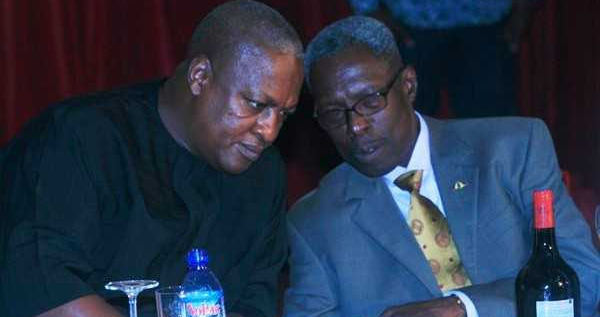
Former Senior Presidential Aide Dr Tony Aidoo has issued a stark warning to the ruling National Democratic Congress (NDC) government to ensure an end to illegal mining (galamsey) or face the wrath of Ghanaians in the next general elections.
Failure to decisively tackle the pervasive illegal mining menace could lead to the party’s defeat in the 2028 general elections.
Speaking on JoyNews today, July 17, Dr Aidoo underscored the critical importance Ghanaians place on environmental protection and accountability, drawing parallels to the previous administration’s perceived inaction.
“Akufo-Addo didn’t care, so don’t say Ghanaians don’t care about your administration. If you don’t solve the galamsey problem, in 2028 Ghanaians will vote the NDC out,” Dr Aidoo declared, directly referencing the public’s dissatisfaction with the previous government’s efforts to curb illegal mining.
This strong statement highlights how deeply the galamsey issue resonates with the Ghanaian populace and its potential to be a decisive factor in future elections.
The menace of galamsey has escalated into a national crisis, severely impacting Ghana’s environment, economy, and public health.
Major river bodies, including the Pra, Ankobra, and Birim, have been heavily polluted with mercury, cyanide, and other toxic chemicals, rendering them unsafe for consumption and agricultural use.
The Ghana Water Company Limited (GWCL) has repeatedly reported increased operational costs and challenges in treating water from these sources due to high turbidity and contamination levels.
The devastating impact of galamsey
- Environmental Degradation: According to reports, over 670 square kilometres of land (an area comparable to Singapore) had been destroyed by illegal mining activities by 2024, leading to extensive deforestation and land degradation. Forest reserves, including the Offin Shelter Belt, have been encroached upon, and once-fertile farmlands are now barren.
- Water Pollution: Mercury levels in water bodies near mining sites are alarmingly high, posing significant health risks to communities reliant on these sources. Studies indicate that concentrations of mercury in fish in some affected areas are three times higher than safe consumption levels, while water turbidity can exceed recommended safety standards by hundreds of units. The long-term health consequences include neurological damage, kidney failure, and developmental issues in children.
- Economic Losses: While galamsey provides livelihoods for some, it deprives the government of significant revenue through illegal gold exports. The cost of environmental degradation due to galamsey was estimated to be around 18% of Ghana’s Gross Domestic Product (GDP) by December 2024, reflecting the immense cost of remediation and lost ecological services. It also undermines formal mining operations and discourages legitimate investment.
NDC’s anti-galamsey promises and efforts
The fight against galamsey was a significant electoral promise in the NDC’s 2024 manifesto.
President John Dramani Mahama has publicly recognised the problem as a “national emergency”, vowing a “ruthless war” against it.
Key promises include:
- Ban on New Mining in Forest Reserves: A commitment to prevent further encroachment on vital ecological areas.
- Stiffer Punishments: Amending the Minerals and Mining Law to impose more severe penalties for mining in water bodies.
- Establishment of GoldBod: The Ghana Gold Board (GoldBod) was launched in February 2024 to formalise the small-scale mining sector by becoming the sole, mandated institutional buyer of gold, aiming to control the flow of gold and cut out illicit channels.
- Technological Solutions: Proposing the use of advanced technology, including AI, to track excavators and geo-fence small-scale mining concessions.
- Reclamation and Reforestation: Implementing a ‘Tree for Life’ reforestation policy and a ‘Blue Water Initiative’ to restore degraded lands and water bodies.
- Alternative Livelihoods: Exploring sustainable alternative livelihoods to reduce dependence on illegal mining, particularly for young people in rural areas.
In recent months, the government has intensified anti-galamsey efforts through Operation Halt, with the Ghana Armed Forces (GAF) deploying troops to flush out illegal miners from “red zones” like river bodies and forest reserves.
President Mahama also recently ordered the arrest of rogue anti-galamsey taskforce members involved in extortion, emphasising a commitment to tackling corruption within the fight itself.
Despite these efforts and pronouncements, Dr Aidoo’s strong words serve as a potent reminder that the public demands tangible results.
The perception of government inaction or complicity, regardless of stated intentions, can quickly erode political capital.
For the NDC, the successful resolution of the galamsey crisis is not just an environmental imperative but a crucial test of its governance and a determinant of its political future.
DISCLAIMER: The Views, Comments, Opinions, Contributions and Statements made by Readers and Contributors on this platform do not necessarily represent the views or policy of Multimedia Group Limited.
DISCLAIMER: The Views, Comments, Opinions, Contributions and Statements made by Readers and Contributors on this platform do not necessarily represent the views or policy of Multimedia Group Limited.


